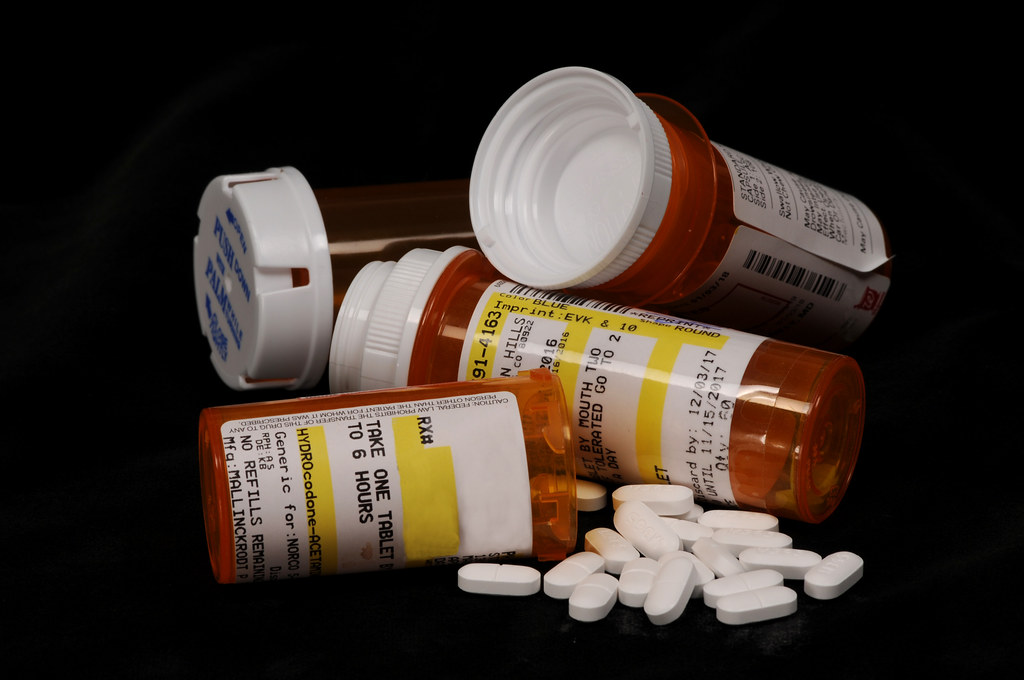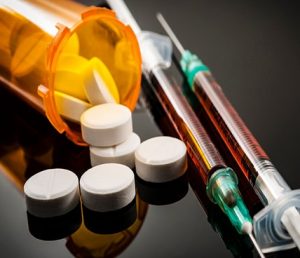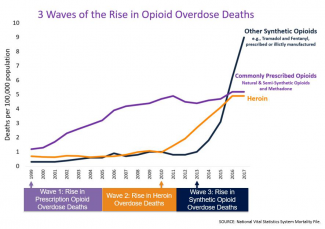WHAT YOU SHOULD KNOW ABOUT OPIOID MEDICINE
 WHAT IS AN OPIOID?
WHAT IS AN OPIOID?
Opioids are a class of drugs that include the illegal drug heroin, synthetic opioids such as fentanyl, and pain relievers available legally by prescription, such as oxycodone (OxyContin®), hydrocodone (Vicodin®), codeine, morphine, and many others. Opioid medications are used to treat moderate to severe pain.
HOW DO OPIOIDS WORK?
 Opioids attach to proteins called opioid receptors on nerve cells in the brain, spinal cord, gut and other parts of the body. When this happens, the opioids block pain messages sent from the body through the spinal cord to the brain.
Opioids attach to proteins called opioid receptors on nerve cells in the brain, spinal cord, gut and other parts of the body. When this happens, the opioids block pain messages sent from the body through the spinal cord to the brain.
While they can effectively relieve pain in most cases, opioids carry some risks and can be highly addictive. The risk of addiction is especially high when opioids are used to manage chronic pain over a long period of time.
THE RISKS OF OPIOIDS:
With long-term use opioids carry the following risk:
T he most common symptoms of addiction are severe loss of control, continued use despite serious consequences, preoccupation with using, failed attempts to quit, tolerance and withdrawal.
he most common symptoms of addiction are severe loss of control, continued use despite serious consequences, preoccupation with using, failed attempts to quit, tolerance and withdrawal.
- Physical Dependence: having symptoms of withdrawal when the medication is stopped or severely reduced
- Addiction: this is a brain disease often chronic in nature, which affects the functioning of the brain and body. Medications change the structure of the brain and how the brain works.
- Overdose: this happens when a toxic amount of a drug, or combination of drugs overwhelms the body that can result in death.
SIGNS OF OVERDOSE:
 Call 911 right away if you have any of the signs of overdose mentioned below:
Call 911 right away if you have any of the signs of overdose mentioned below:
- Pale or Bluish Skin Color
- Severe Confusion; not knowing where you are
- Heart Beating Slower Than Normal
- Trouble Breathing, Dilated pupils
- Upset Stomach, nausea and vomiting
FIND A TREATMENT FACILITY NEAR YOU!
Help is available, treatment works, and people recover every day.
Visit Find Treatment @ https://findtreatment.gov/
READ MORE & LEARN MORE!
CLICK HERE TO DOWNLOAD COMPLETE PDF ARTICLE